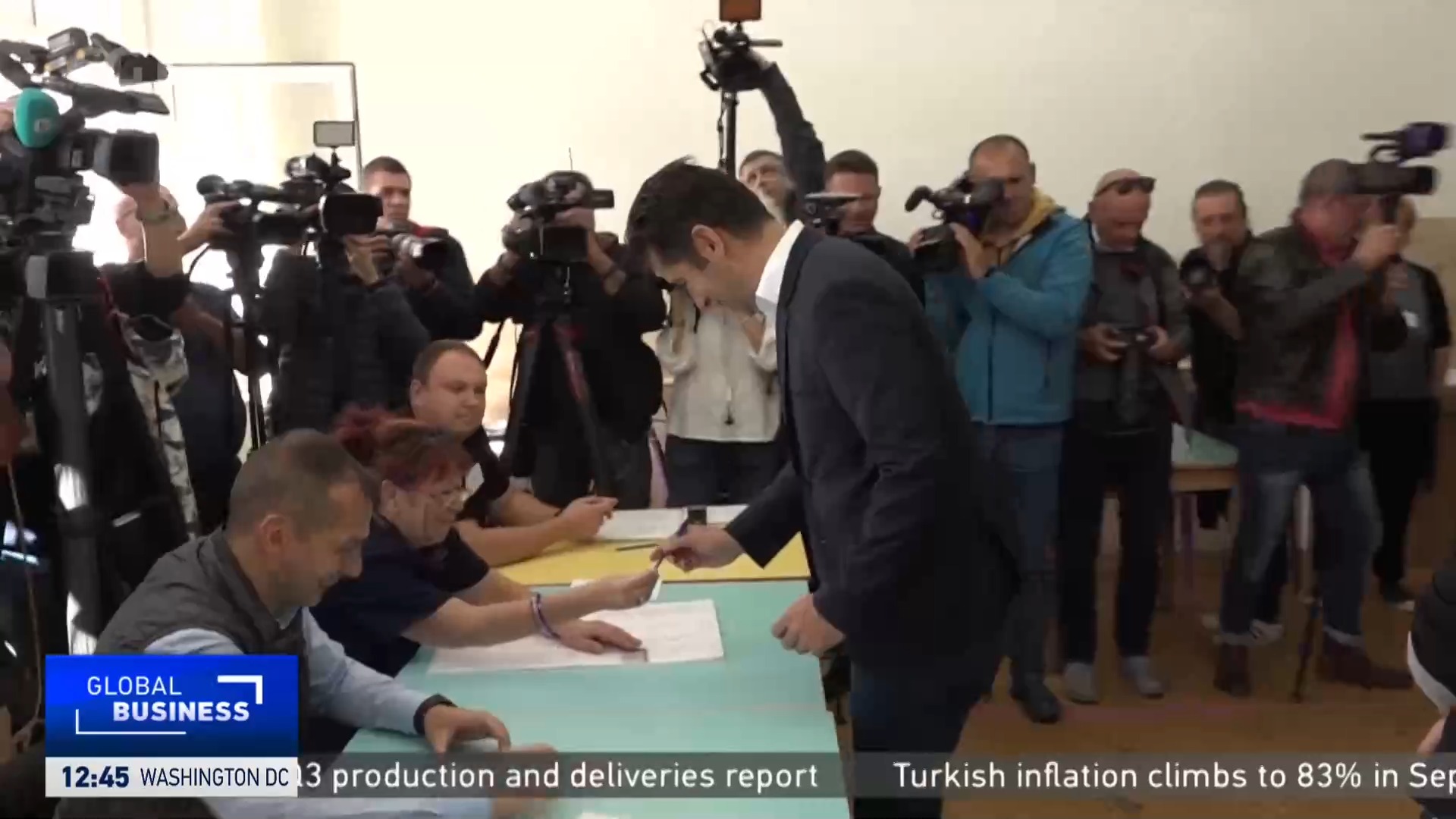02:38

Bulgaria held its fourth election in 18 months on Sunday, but tough coalition negotiations lie ahead before a workable government can be formed. The center right GERB party is on course for victory despite allegations of corruption. But it will need others to form a government.
With over 95 percent of the ballots counted, Boyko Borissov's party won over 25 percent of the vote, five points ahead of Kiril Petkov's centrist party.
These snap elections came after a fragile coalition led by Petkov lost a no-confidence vote in June when he refused to pay Russia for gas in rubles.

Boyko Borissov, former long-serving premier and leader of the centre-right GERB, looks to be in control. /Stoyan Nenov/Reuters
Boyko Borissov, former long-serving premier and leader of the centre-right GERB, looks to be in control. /Stoyan Nenov/Reuters
But besides price hikes, the looming energy crisis and inflation rates that hit double digits in August, the conflict in Ukraine has fragmented Bulgaria's already deeply divided political scene, polarizing the country and giving pro-Russian parties a bigger voice.
Political analysts say a pro-Kremlin party will be unavoidable in the new government led by Borissov who has in the past enjoyed a close relationship with the Kremlin.
Political analyst Daniel Smilov said: "The election showed Bulgaria is not a pro-Putin country or something like that, but it's actually very difficult to form a coalition that is consistently pro-European. You have to take on board some of the pro-Russian parties like the socialist party."
Bulgaria, which joined the European Union 15 years ago, had enjoyed relative stability up until 2020. But large-scale, drawn-out anti-government protests rocked the country in that summer just over two years ago.
People accused the government of Borissov, first elected in 2009, of corruption and democratic backsliding.
Fast-forwarding four elections later, the country still remains in turmoil, something that analysts say is not necessarily a bad thing.
Smilov added: "There is a problem with corruption and these elections happened because of corruption, hopefully this cycle of turbulence and snap elections will highlight and address this situation."
Now negotiations will get underway to see which parties GERB can form a coalition with. It's thought six or seven smaller parties will be needed, as Petkov is unlikely to work with his political adversary.
And there's no guarantee the talks with go well, with some already talking about new elections.